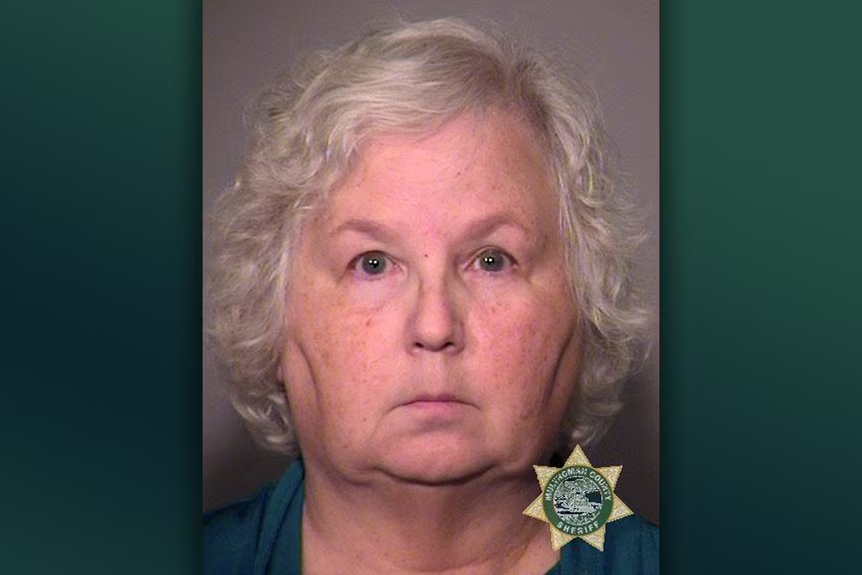What began as a seemingly tragic morning at a Portland cooking school turned into one of Oregon’s most shocking true-crime stories—one that seemed to come straight out of a murder novel.
On June 2, 2018, emergency crews rushed to the Oregon Culinary Institute (OCI) after reports of an instructor in distress. Beloved chef and teacher Daniel “Dan” Brophy, 63, was found unresponsive in a classroom. At first glance, responders thought he had suffered a heart attack—but they soon discovered two gunshot wounds. Dan Brophy was pronounced dead at the scene.
Police recovered two 9mm shell casings, but there was no sign of forced entry or robbery. His wallet still contained cash and credit cards. It was clear that whoever killed Dan came there with purpose.
Also Read
A Beloved Chef and a Shocked Community
Dan Brophy, known for his humor, patience, and encyclopedic culinary knowledge, was deeply admired by students and colleagues. “Chef Brophy was an encyclopedia of food,” recalled former instructor Bikram Vaidya in Oxygen’s series Killer Grannies.
Investigators quickly ruled out students as suspects. Then, as police secured the scene, Dan’s wife, Nancy Crampton Brophy, 67, arrived—shaken and demanding answers. She told detectives she came because she “heard there was a situation” at the school.
Nancy, a romance novelist and former president of the Rose City Romance Writers, appeared devastated. “She told investigators they lived a quiet, happy life,” said The Oregonian reporter Zane Sparling. “They both loved to cook and took romantic trips together.”
But when detectives found that nothing had been stolen and Dan had been shot in what looked like a targeted attack, suspicion began to shift closer to home.
From Love Story to True Crime
Nancy and Dan met years earlier in culinary school. She was from Texas, he was a preacher’s son from North Dakota. They married, blending her love of writing with his passion for teaching. Though they had no children together, Nancy embraced Dan’s adult son, Nathaniel, and doted on his grandchildren.
By all outward appearances, they were a loving, stable couple. But detectives soon discovered their finances were strained—and that Nancy stood to collect nearly $800,000 in life insurance if her husband died.
When investigators asked Nancy about firearms, she admitted they owned a gun “for protection” but claimed it had never been used. Ballistics, however, showed Dan’s killer used a 9mm weapon—the same caliber Nancy had purchased just months before the murder.
The Story Behind “How to Murder Your Husband”
Then came a chilling revelation: years earlier, Nancy had written an essay titled “How to Murder Your Husband.” Published on her blog in 2011, it explored fictional ways to kill a spouse and avoid getting caught.
In it, she mused about motives—money, betrayal, freedom—and even mentioned firearms. “It was apparent she had knowledge of how someone might carry out a murder,” said former prosecutor Shawn Overstreet.
Though her defense claimed the piece was “purely fiction,” investigators couldn’t ignore the parallels.
The Evidence Mounts
Detectives discovered surveillance footage showing a minivan resembling Nancy’s driving near the culinary school around the time of the murder—despite her insistence that she was home. After careful analysis, they confirmed it was indeed her vehicle.
The investigation also revealed Nancy had purchased a ghost gun kit—a homemade, untraceable firearm—months before Dan’s death. When she failed to assemble it, she later bought a 9mm Glock pistol at a gun show.
Though ballistics testing couldn’t conclusively match her Glock to the bullets recovered, prosecutors argued she had replaced the gun’s slide or barrel to conceal her crime.
Meanwhile, Nancy’s behavior after the murder raised further suspicion. She asked police to sign a statement clearing her as a suspect so she could collect on Dan’s life insurance policy. Detectives declined.
The Trial
After multiple delays due to the COVID-19 pandemic, Nancy Crampton Brophy’s trial began in April 2022—nearly four years after Dan’s death.
Prosecutors painted a picture of a woman motivated by financial desperation and resentment, suggesting she killed her husband to free herself from debt and reshape her life. “She wanted a change of lifestyle,” Overstreet told jurors. “And Dan couldn’t give that to her.”
The defense argued Nancy loved her husband deeply and had no reason to harm him. They maintained that the state’s case was circumstantial and that her essay was taken out of context as “dark humor.”
But the jury wasn’t convinced.
Guilty Verdict
After eight weeks of testimony, the jury found Nancy guilty of second-degree murder. She was sentenced to life in prison with the possibility of parole after 25 years.
Her conviction shocked and saddened the Portland community—and left many grappling with the eerie coincidence of a novelist who seemed to script her own crime.
Detective Anthony Merrill reflected on the case, saying, “This wasn’t random. It was personal. It felt like someone came there with vengeance.”
From writing about fictional murders to committing one, Nancy Crampton Brophy’s story blurred the line between imagination and reality. What began as the tragic death of a respected chef ultimately unraveled into one of Oregon’s most unsettling tales—a chilling reminder that sometimes, truth is stranger than fiction.












